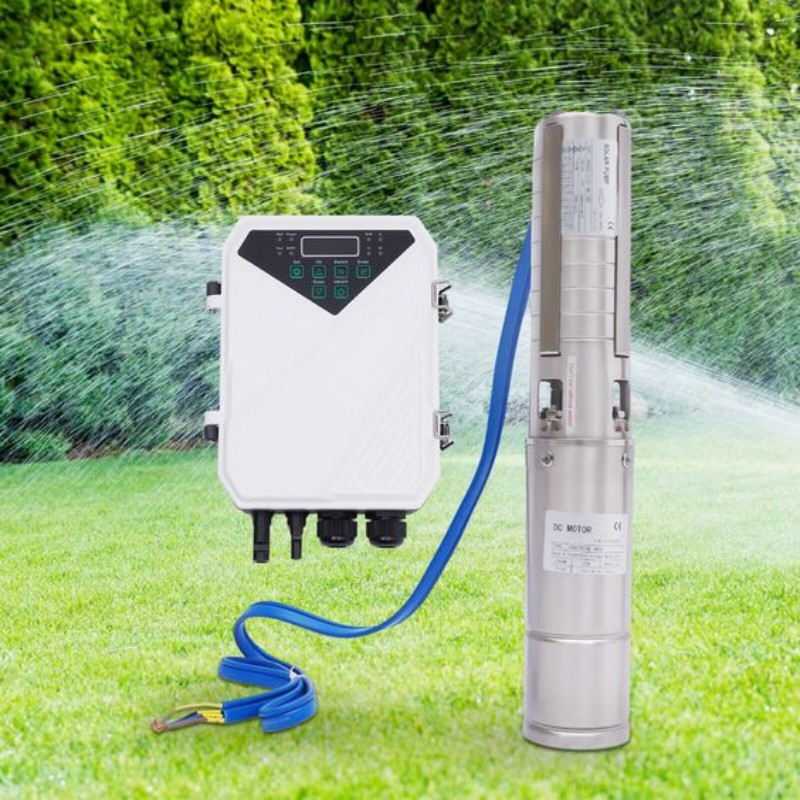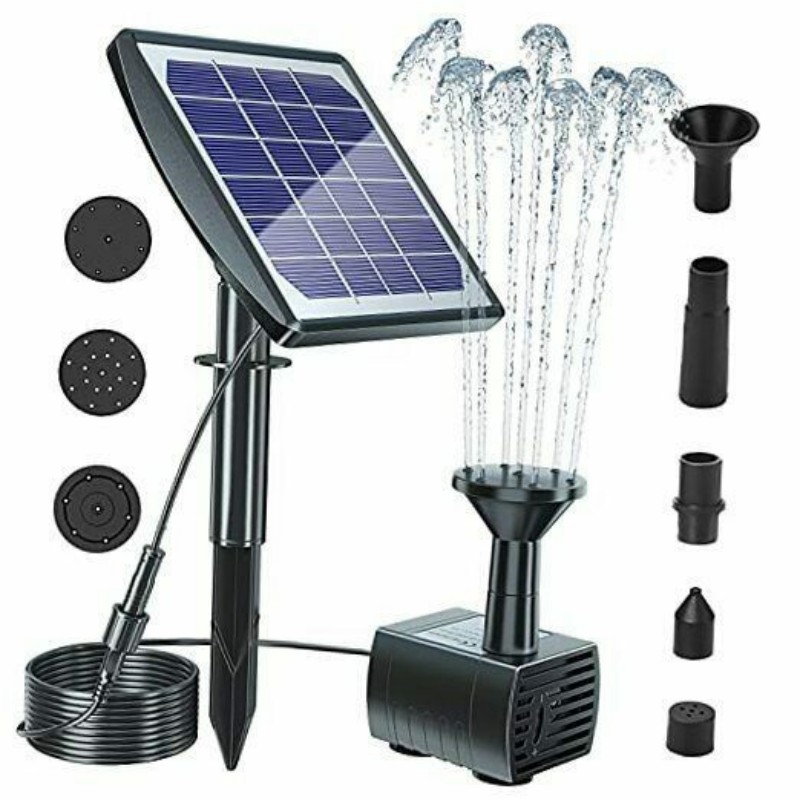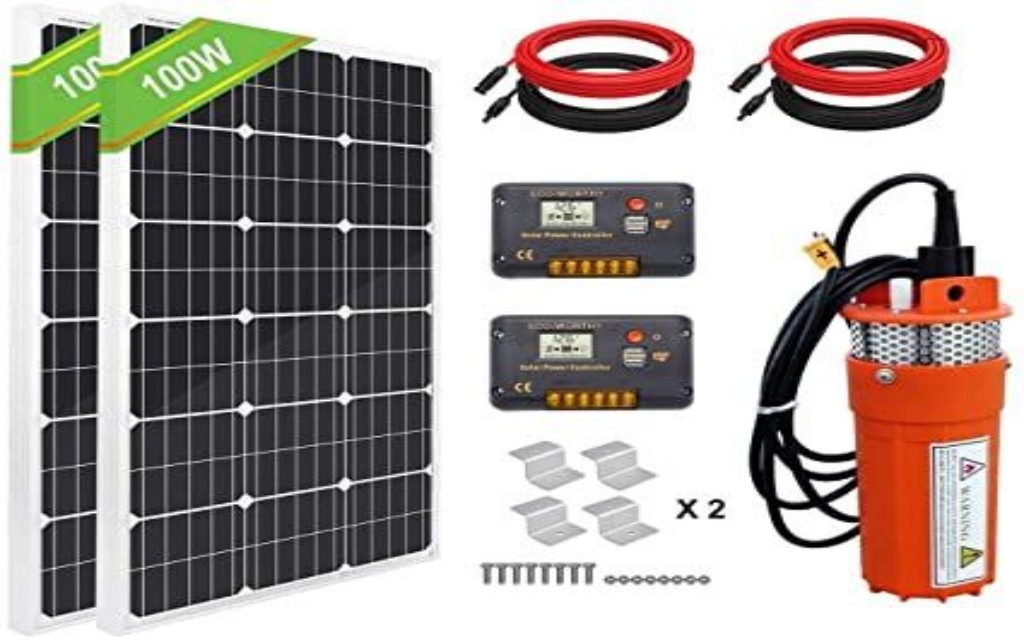.The Benefits of Investing in Solar Water Pumps: A Sustainable Solution for Agriculture
In today's ever-evolving world, the importance of sustainable solutions cannot be emphasized enough. When it comes to agriculture, finding innovative ways to conserve resources and reduce environmental impact is crucial. That's where solar water pumps come into play. These cutting-edge devices harness the power of the sun to provide a sustainable and cost-effective solution for farmers. By replacing conventional diesel or electric pumps, solar water pumps offer numerous benefits. Not only do they eliminate the need for fossil fuels, reducing carbon emissions, but they also provide a reliable and consistent source of water for irrigation. This means that farmers can increase their crop yields, improve efficiency, and ultimately, enhance their livelihoods. In this article, we will explore the various advantages of investing in solar water pumps and how they contribute to a more sustainable future for agriculture.
Advantages of using solar water pumps(Solar water pump manufacturers)
Solar water pump manufacturers offer a range of advantages over traditional pumps, making them an attractive option for farmers looking to embrace sustainability in agriculture. One of the key benefits is the significant cost savings they provide.
1. Cost savings and financial benefits
Using solar energy to power water pumps eliminates the need for expensive diesel or electricity. With rising fuel costs, this can result in substantial savings for farmers in the long run. Additionally, solar water pumps require minimal maintenance, resulting in further cost reductions. The initial investment in a solar water pump may be higher compared to traditional pumps. But the long-term financial benefits make it a worthwhile investment. These cost savings can free up capital for other investments on the farm, contributing to overall profitability and sustainability.
2.Environmental benefits of solar water pumps
One of the most significant advantages of solar water pumps is their positive environmental impact. Unlike diesel-powered pumps, solar water pumps produce zero greenhouse gas emissions during operation. By harnessing the power of the sun, farmers can reduce their carbon footprint and contribute to mitigating climate change. Solar energy is a clean, renewable resource, and by utilizing it for irrigation purposes. Farmers can play a crucial role in creating a more sustainable future for agriculture. Furthermore, solar water pumps do not contribute to noise pollution, making them an environmentally friendly choice for rural areas.
3. Increased reliability and independence
Conventional pumps often rely on an uninterrupted electricity supply or a constant supply of diesel fuel, which can be unreliable in remote or off-grid areas. Solar water pumps, on the other hand, provide a reliable and consistent source of power, even in remote locations with limited access to the electrical grid. By harnessing the power of the sun, farmers can become more self-sufficient and independent, reducing their reliance on external energy sources. This increased reliability ensures that farmers have a consistent water supply for irrigation. Leading to improved crop yields and overall farm productivity.
4. Long-term durability and low maintenance
Solar water pumps are designed to be durable and require minimal maintenance. Unlike traditional pumps that often suffer from wear and tear, solar pumps have fewer moving parts and are less prone to breakdowns. This means that farmers can save both time and money on pump maintenance and repairs. With proper installation and regular cleaning of the solar panels, these pumps can last for decades. Providing a reliable water supply for years to come. This long-term durability makes solar water pumps a cost-effective investment for farmers.

Case studies of successful solar water pump installations
Real-life examples of successful solar water pump installations can provide valuable insights into the benefits and practicality of using this sustainable solution in agriculture. Let's take a look at two case studies that highlight the positive impact of solar water pumps.
Case Study 1: FarmX in India
FarmX, a small-scale farm in rural India, faced numerous challenges due to unreliable electricity supply and high diesel costs. With the installation of a solar water pump, the farm was able to access a consistent water supply for irrigation, resulting in increased crop yields and improved farm productivity. The cost savings from eliminating diesel expenses allowed the farmer to invest in other aspects of the farm. Such as improved irrigation infrastructure and crop diversification. The success of the solar water pump installation at FarmX inspired neighboring farmers to adopt the technology, creating a ripple effect of sustainable agricultural practices in the region.
Case Study 2: Sustainable Farms in California
In California, where water scarcity is a pressing issue, sustainable farms have turned to solar water pumps to address their irrigation needs. By utilizing solar energy, these farms have reduced their reliance on limited water resources and traditional pumps powered by fossil fuels. The consistent water supply provided by solar water pumps has allowed farmers to optimize their irrigation schedules and improve water efficiency. Leading to higher crop yields while conserving water. The financial savings from reduced electricity bills and the environmental benefits of reduced carbon emissions have made solar water pumps a popular choice among farmers in California's agricultural sector.

Choosing the right solar water pump for your needs(Solar water pump manufacturers)
When it comes to choosing a solar water pump, several factors need to be considered to ensure the best fit for your specific agricultural needs. These factors include the water requirements of your crops. The total dynamic head (TDH) of your irrigation system, and the available solar resources in your region. It is essential to work with a reputable supplier or consultant who can guide you through the selection process and provide you with the most suitable solar water pump for your farm. By choosing the right pump, you can maximize the benefits of solar energy and ensure optimal performance and longevity.

Installation and maintenance considerations
Proper installation and regular maintenance are crucial to the long-term performance and efficiency of solar water pumps. When installing a solar water pump, it is essential to consider the positioning and orientation of the solar panels for maximum sunlight exposure. Regular cleaning of the solar panels is necessary to remove dust and debris that can reduce their efficiency. It is also important to conduct routine inspections of the pump system, including checking for leaks. Ensuring proper wiring connections, and monitoring the performance of the pump. By following the manufacturer's guidelines and investing in regular maintenance, farmers can optimize the performance and lifespan of their solar water pumps.
Conclusion: Embracing sustainability in agriculture with solar water pumps
The benefits of investing in solar water pumps for agricultural irrigation are undeniable. By harnessing the power of the sun, farmers can reduce their reliance on fossil fuels, cut down on carbon emissions, and improve their farm productivity. Solar water pumps offer cost savings, environmental benefits, increased reliability, and long-term durability. Real-life case studies demonstrate the positive impact of solar water pump installations, inspiring other farmers to adopt this sustainable solution. When choosing water pump manufacturers, considering factors such as water requirements, TDH, and solar resources is crucial. Proper installation and maintenance ensure optimal performance and longevity. By embracing solar water pumps, farmers can contribute to a more sustainable future for agriculture, enhance their livelihoods, and create a positive impact on the environment.
